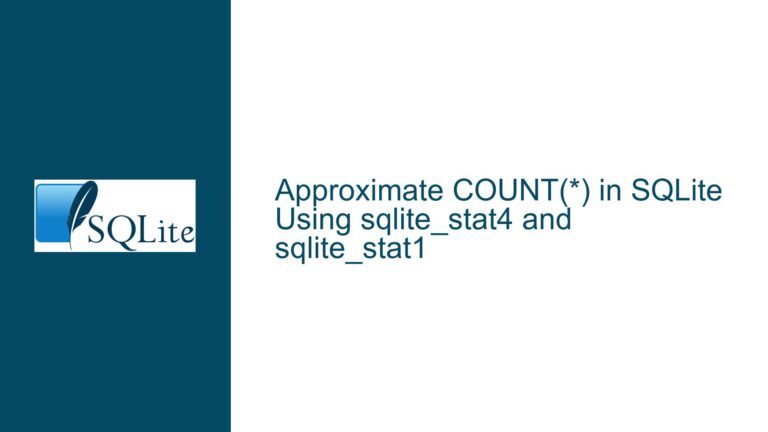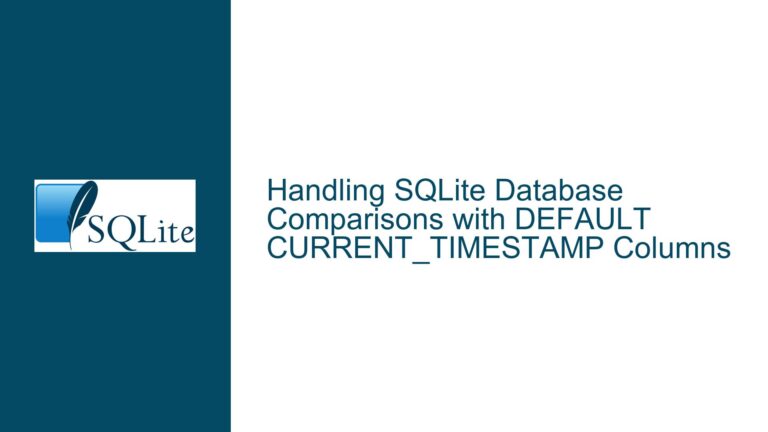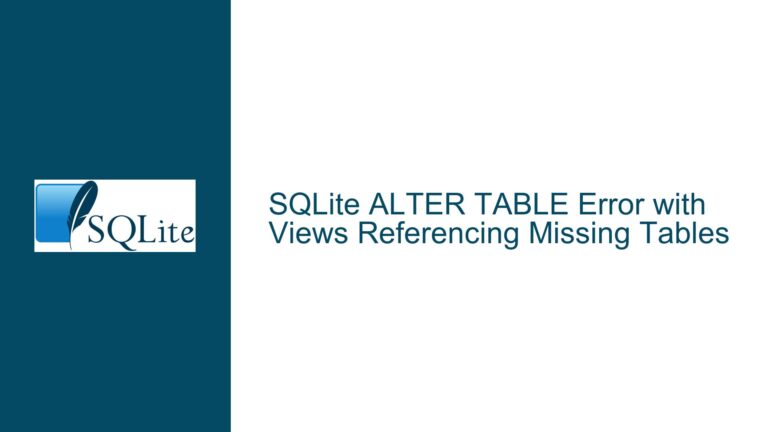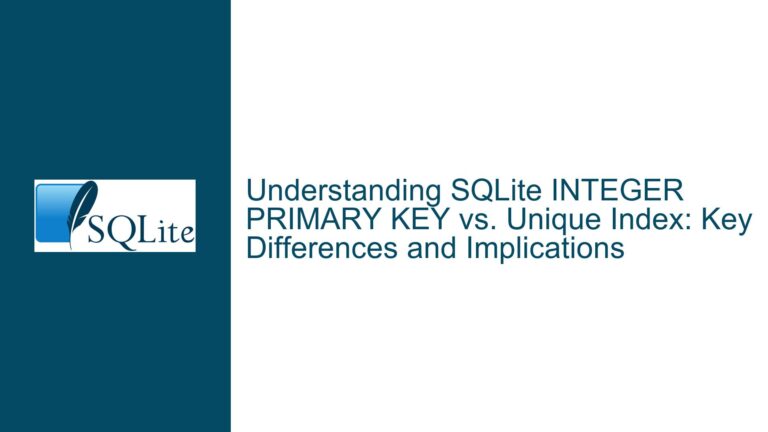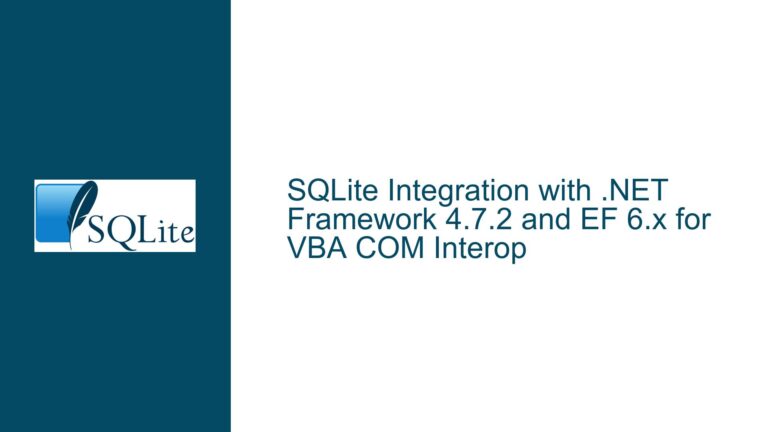SQLite INSERT RETURNING Clause Limitations and Workarounds
SQLite INSERT RETURNING Clause Incompatibility with PostgreSQL The INSERT RETURNING clause is a powerful feature in SQL databases that allows developers to retrieve the values of the inserted rows directly from the INSERT statement. This feature is particularly useful in scenarios where the inserted data needs to be immediately used or verified. PostgreSQL has long…

